Not only were white Schwalm bodices components of the festive Schwalm costume but also blue bodices were sometimes worn over unadorned white bodices for especially festive occasions. For example brides and bridesmaids wore these additional bodices.
The bodices were very finely embroidered in white and then dyed to blue.
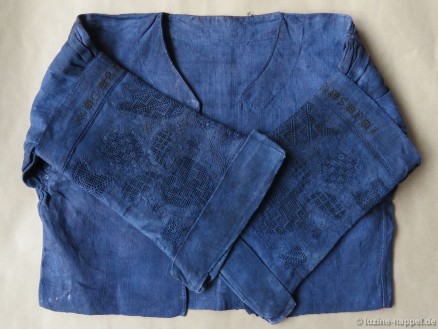 The pattern was similar to the pattern for the white bodice. The sleeves of the blue bodices were slightly shorter
The pattern was similar to the pattern for the white bodice. The sleeves of the blue bodices were slightly shorter
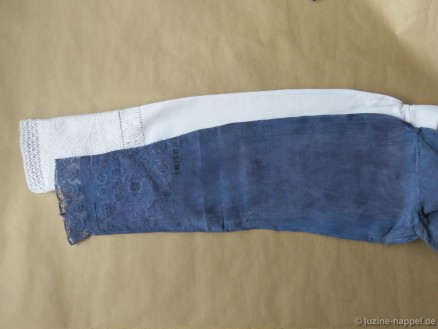 and the mid-arm section was somewhat wider than that of the white bodices.
and the mid-arm section was somewhat wider than that of the white bodices.
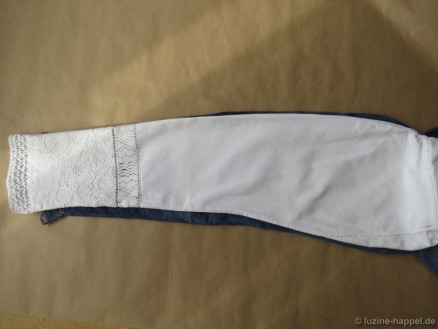 Because of the somewhat wider cut in the mid-arm section, the folded sleeve cuff stuck out away from the arm
Because of the somewhat wider cut in the mid-arm section, the folded sleeve cuff stuck out away from the arm
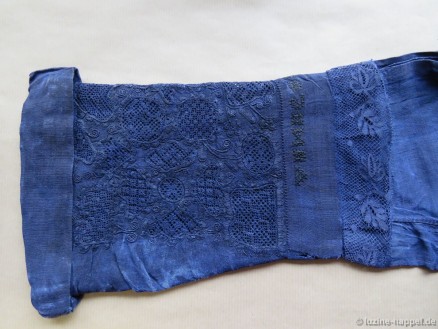 and enabled a glimpse at the white bodice worn underneath.
and enabled a glimpse at the white bodice worn underneath.
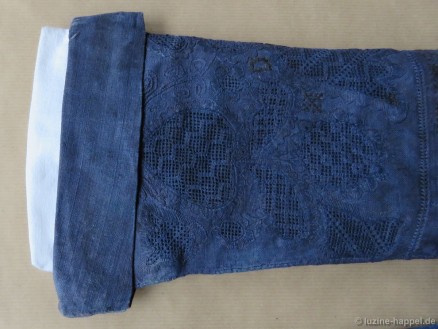 A painting by Emil Beithan shows the festive costume of a Schwalm bride. We can see the bride wearing both a white and a blue bodice as part of her intricate costume.
A painting by Emil Beithan shows the festive costume of a Schwalm bride. We can see the bride wearing both a white and a blue bodice as part of her intricate costume.
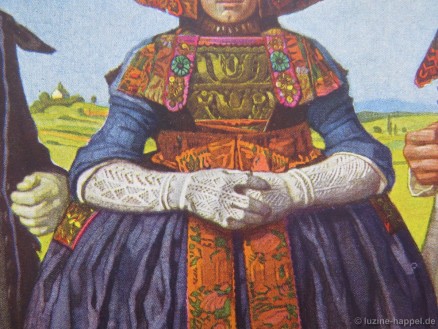 To reduce the bulk of the two bodices and thus making it more comfortable wear, sometimes a white strip was added to the blue bodice inside the fold. This makes the wearing of a full white bodice unnecessary.
To reduce the bulk of the two bodices and thus making it more comfortable wear, sometimes a white strip was added to the blue bodice inside the fold. This makes the wearing of a full white bodice unnecessary.
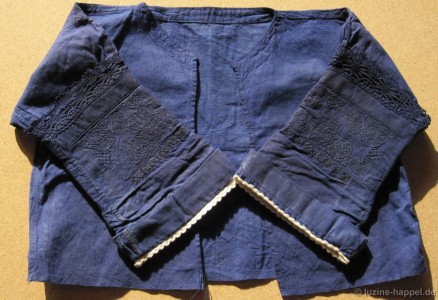 In contrast to the white bodices, the embroidery of the blue bodices was not lined, as seen in the image below of a very old blue bodice sleeve cuff that has been turned inside out.
In contrast to the white bodices, the embroidery of the blue bodices was not lined, as seen in the image below of a very old blue bodice sleeve cuff that has been turned inside out.
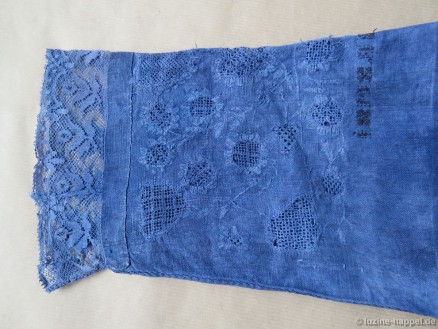 The bottom edge of the sleeve got a small hem and was additionally decorated with bobbin lace. In contrast to the white bodices, no needlelace was worked, but rather fine bobbin lace was used as decoration. (In this article I am showing a couple of different blue bodices. On one blue bodice the bobbin lace is missing. We can only see the remnants of some small stitches at the edge indicating that there was a lace edging. In the pictures here it is not noticeable.)
The bottom edge of the sleeve got a small hem and was additionally decorated with bobbin lace. In contrast to the white bodices, no needlelace was worked, but rather fine bobbin lace was used as decoration. (In this article I am showing a couple of different blue bodices. On one blue bodice the bobbin lace is missing. We can only see the remnants of some small stitches at the edge indicating that there was a lace edging. In the pictures here it is not noticeable.)
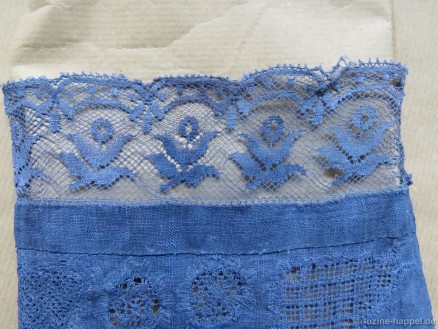 Whereas the white bodices had needle-weaving bands at the top edges of the cuff, the embroidery of the blue bodices was bordered with initials and small ornaments in black Cross stitch embroidery.
Whereas the white bodices had needle-weaving bands at the top edges of the cuff, the embroidery of the blue bodices was bordered with initials and small ornaments in black Cross stitch embroidery.
Embroidered on this example are the initials A N G R D I (Annegret/Anna Margarethe …). Often these initials were used two times, both at the bottom and at the top of the whitework border. In especially wide Schwalm whitework borders, the bottom initials were covered by the fold.
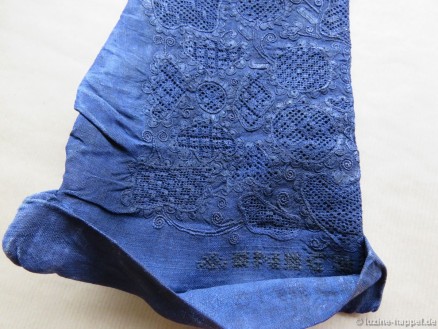 After completion the bodices were dyed to blue. Before Indanthren (colour fast stain from Indigo and Anthrazen) came onto the market, Indigo was used. I will write more about this special process in a future article.
After completion the bodices were dyed to blue. Before Indanthren (colour fast stain from Indigo and Anthrazen) came onto the market, Indigo was used. I will write more about this special process in a future article.
The colour was not very solid; it dissolved as soon as it came into contact with water. To protect the bodices from abrasion and general wear and tear, they were heavily starched.
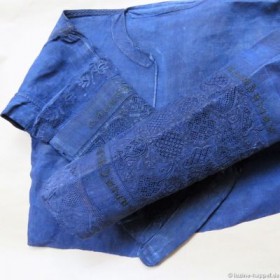

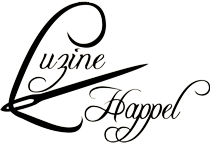
Schwalm looks stunning in blue!
xx
Mostly the blue was very fine embroidered. I collected some beautiful pieces. I will enable a closely look to the grand embroidery in the future.